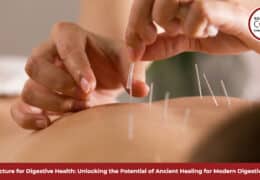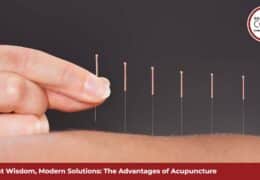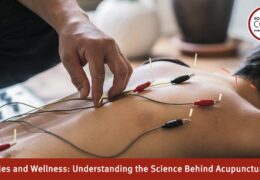Acupuncture can be a goof choice for those suffering from depression.
Depression, often characterized by persistent feelings of sadness and a lack of interest or pleasure in activities, affects millions worldwide. While conventional treatments exist, alternative therapies like acupuncture have garnered attention for their potential to complement mainstream approaches in managing depressive symptoms.
Acupuncture, a cornerstone of traditional Chinese medicine, involves the insertion of fine needles at specific points on the body to stimulate energy flow and restore balance. While not a standalone treatment for clinical depression, acupuncture is increasingly explored as a complementary approach to alleviating depressive symptoms and promoting emotional well-being.
Studies published in reputable journals such as the Journal of Affective Disorders and Journal of Clinical Psychiatry have suggested that acupuncture may offer benefits in improving mood and reducing symptoms of depression. Research indicates that acupuncture may stimulate the release of neurotransmitters such as serotonin and endorphins, which play a role in regulating mood and emotions.
The holistic nature of acupuncture aligns with its potential to address the underlying imbalances contributing to emotional distress. Traditional Chinese medicine views depression as an imbalance in the body’s energy flow or disruptions in the harmonious interplay of organs and functions. Acupuncture aims to restore this balance by targeting specific acupuncture points along meridians associated with emotional regulation.
Moreover, acupuncture sessions provide a calming and relaxing experience, potentially aiding in stress reduction and promoting a sense of well-being. Stress often exacerbates depressive symptoms, and acupuncture’s ability to induce relaxation may help individuals manage stress levels, consequently improving their mood.
It’s important to note that while acupuncture shows promise in managing depressive symptoms, it is not a replacement for conventional treatments such as therapy or medication. Instead, it can complement these approaches, offering a holistic perspective in addressing the complex nature of depression.
Additionally, individual responses to acupuncture can vary. Some individuals may experience significant improvements in mood and emotional well-being after acupuncture sessions, while others might not respond as profoundly. Tailoring treatment plans to individual needs and regularly assessing progress is essential in maximizing the potential benefits of acupuncture for depression.
In conclusion, while further research is necessary to fully elucidate the mechanisms and efficacy of acupuncture in managing depression, preliminary studies suggest its potential as a complementary therapy. Acupuncture’s ability to modulate neurotransmitters, promote relaxation, and address underlying imbalances aligns with its role in supporting emotional health.
By integrating acupuncture into comprehensive treatment plans, individuals battling depression can potentially find relief, experience improved mood, and take a step toward restoring emotional balance.
Sources:
Qu, S., Huang, Y., & Zhang, Z. J. (2013). An updated review of acupuncture treatment of depression. Journal of Affective Disorders.
Yeung, W. F., Chung, K. F., Ng, K. Y., Yu, Y. M., & Ziea, E. T. (2015). A systematic review on the efficacy, safety and types of Chinese herbal medicine for depression. Journal of Clinical Psychiatry.









Leave a Reply